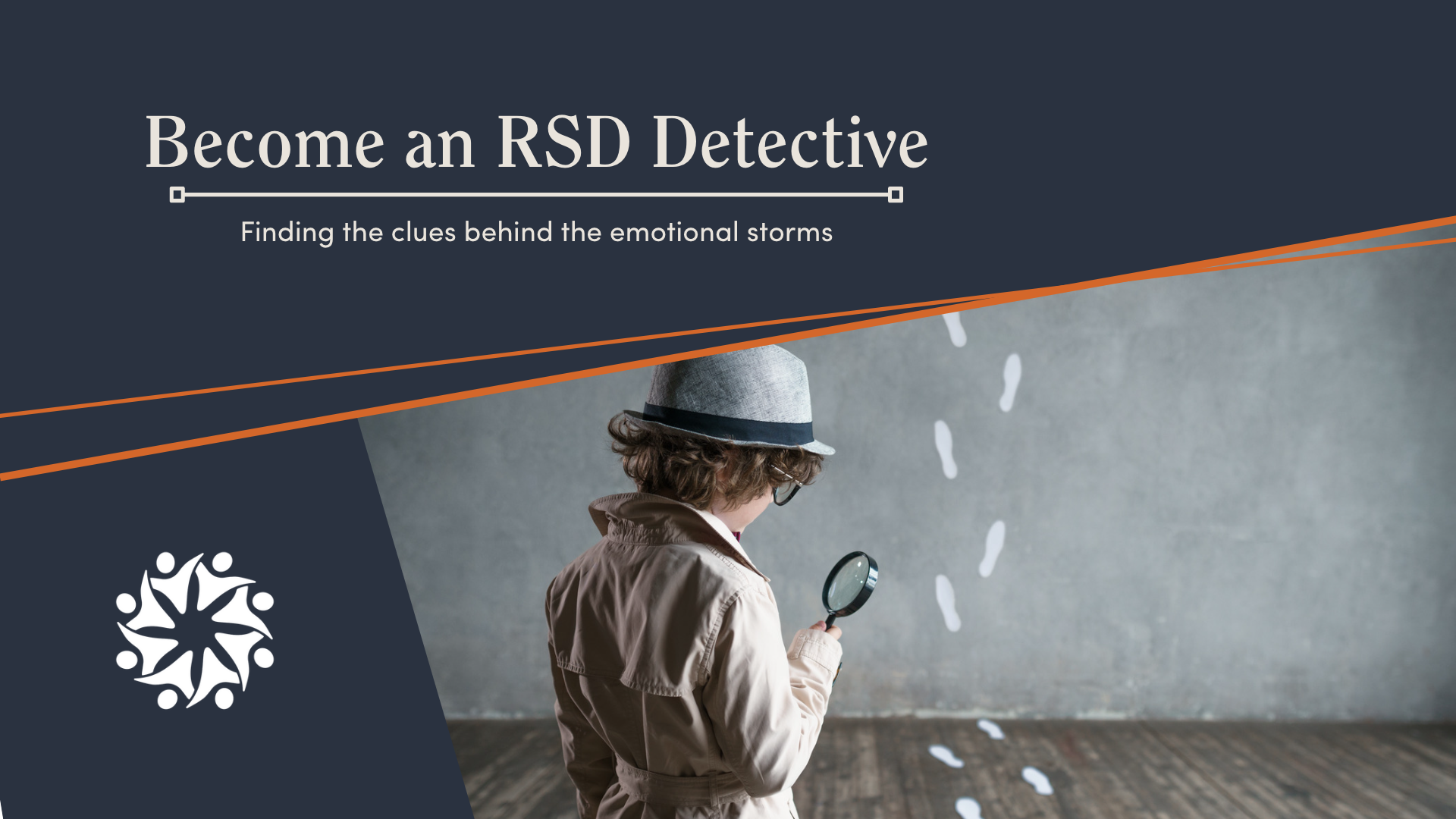Become an RSD Detective
Have you ever watched or listened to someone trying to solve a mystery?
Whether you're listening to the latest true crime podcast or you're watching a Sherlock Holmes movie, these mysteries that need solved always start with one thing:
Questions.
Who did the crime? Where is the missing person? Why would someone leave a glass slipper on the stairs?
It seems to not only be about asking questions, but about asking the right questions.
What does this have to do with ADHD?
See, now you're asking the right question! This is not just about ADHD, but about a very common symptom of ADHD called Rejection Sensitive Dysphoria (RSD).
RSD causes extreme emotions. Most often, these emotions come from interactions we have with the people around us.
Your boss could send you an email, asking you to meet them in their office that afternoon. This could send you inwardly spiraling with anxiety and worry—possibly imagining the worse possible outcome. You probably don't even have any proof to warrant this emotional storm, but RSD doesn't care if you have proof.
The emotional and physical toll that's experienced by someone going through an RSD episode can be extreme. It can even cause physical pain and discomfort.
How to deal with RSD
I am constantly being asked by clients, community members, and listeners of The ADHD Podcast how to deal with RSD.
Unfortunately, RSD is a pretty new idea in the ADHD community, so there isn't a lot of documented research on treatment for RSD or emotional dysregulation. But, I do have some thoughts on how you might be able to shorten the amount of time you're going through these moments of extreme emotions.
Become an RSD Detective
This brings me back to the beginning where I was talking about asking the right questions.
The biggest part that most people talk to me about is these feelings of despair, and expecting the worst possible outcome. Because these emotional storms are so strong, it can be difficult to think clearly and rationally in the moment you're experiencing an RSD episode.
As a coach, when I'm talking to a client who is expressing a lot of these limiting beliefs and all-or-nothing thinking, the best thing I can do is to put on my detective hat and start asking questions.
What happened that caused you to feel this way?
Who was involved?
What was said?
Why do you think this will be the outcome?
What proof do you have to support this?
Once they start to talk out their feelings and answer these questions truthfully, it becomes easier to part the fog of their emotional distress and start to see things how they really are.
Now it’s your turn
You can't expect that you will always be in a situation where you can easily talk things out with a coach or a friend. But, you can prepare for those moments when you are experiencing an RSD episode and need to think through these questions.
Take some time now and write down a list of questions similar to what I shared above. You can even keep it somewhere like on your phone to make sure it's always easily accessible. Then, the next time you feel yourself spiraling, you can bring up the questions you prepared and start breaking down what you're feeling and why.
While this process won't "fix” you from ever experiencing the symptoms of RSD, it may help you cope better and get through the storm a little faster next time.
Thank you for your time and attention,
Nikki

